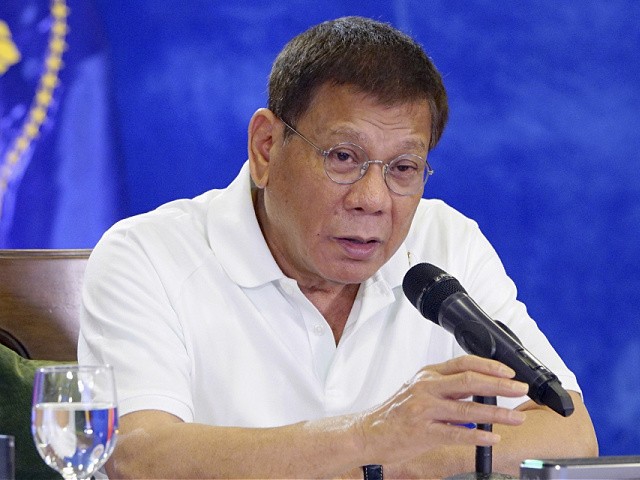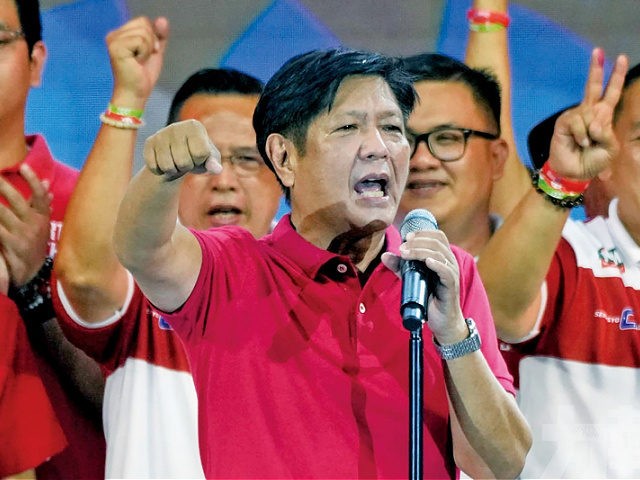Outgoing Philippine President Rodrigo Duterte on Thursday urged incoming Philippine President Ferdinand Marcos Jr. to exert “stronger pressure” on the nation’s illicit drug industry during his upcoming administration, the Manila Bulletin reported.
President Duterte said during a regular public address on May 12 that he hoped Marcos Jr. will continue an effort to eradicate the trade and use of illegal drugs in the Philippines established by Duterte’s administration.
The leader said he “would insist on a continuance of the drug war” during Marcos’s impending administration, which is slated to begin on June 30.
“This will not stop because of the lure of millions that will be gotten by the businessmen, the traffickers and the drug lords,” Duterte said on Thursday.
“This one, it has to be war. You cannot say it’s just a special operation of the police or the military. It cannot be because this thing is a very sinister and a virulent activity that would affect the life of the nation,” he added.
President Duterte’s “war on drugs” has been among his administration’s most infamous campaigns during its six-year span. Illicit methamphetamine gangs largely led by Chinese nationals have flooded the Philippines with the drug in recent years. The phenomenon has fueled an ongoing drug crisis in the Philippines surrounding the highly addictive and deadly “shabu,” which is the Philippine slang term for crystal methamphetamine.
While profiling Duterte’s crackdown on the illicit trade and use of methamphetamines in the Philippines in December 2016, Reuters highlighted “an uncomfortable truth” at the heart of the campaign.

In this Monday, Feb. 15, 2021, photo provided by the Malacanang Presidential Photographers Division, Philippine President Rodrigo Duterte gestures as he meets members of the Inter-Agency Task Force on the Emerging Infectious Diseases in Davao city, southern Philippines. (Joey Dalumpines/Malacanang Presidential Photographers Division via AP)
“The problem he’s fighting is largely made in China, the country he is embracing as a potential ally at the expense of longstanding ties with the United States,” the news agency observed.
“China’s dominant role in the Philippine meth trade has not dissuaded President Duterte from cozying up to Beijing, even as he declares drugs to be his country’s greatest scourge,” Reuters noted at the time. “Duterte is waging a brutal anti-narcotics campaign that has killed more than 2,000 people and led to the arrest of more than 38,000. Police are investigating some 3,000 more deaths.”
Political analysts have said they expect Marcos to continue the pro-China policies of Duterte during his upcoming presidency, as he has previously expressed sentiments suggesting a favorable eye toward Beijing. Marcos unofficially won the 2022 Philippine presidential election on May 9 with a landslide victory, though he awaits a formal confirmation of the election’s results by the Philippine Congress in June.
Marcos will rule the Philippines alongside Rodrigo Duterte’s daughter, Sara Duterte, who unofficially secured the office of the Philippine vice presidency on May 9. Rodrigo Duterte will step down as Philippine president on June 30 following a term that began in June 2016. Philippine presidents are allowed to serve only a single, six-year term.

COMMENTS
Please let us know if you're having issues with commenting.